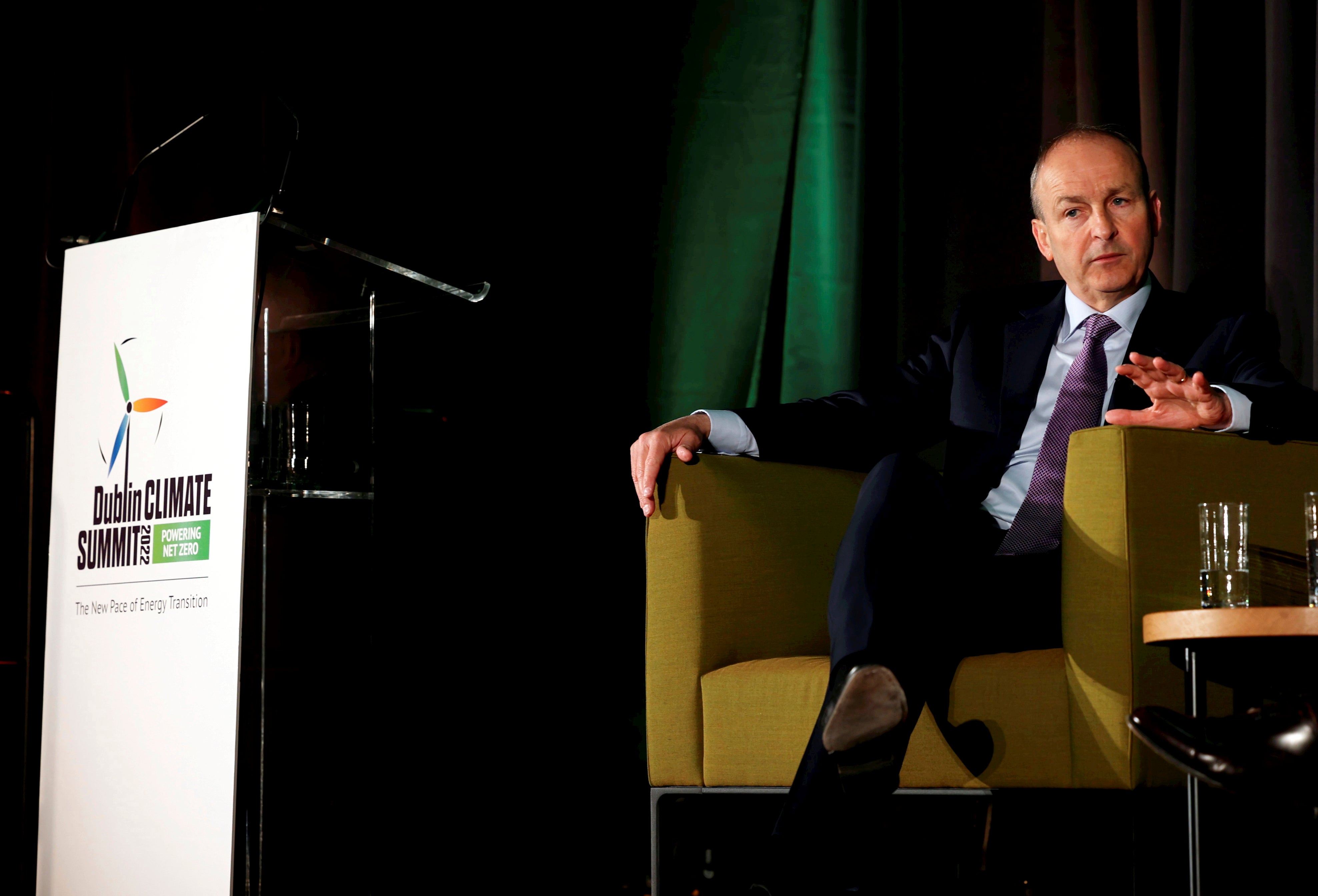Ireland must harness power of its seas to develop offshore renewable energy, PM says
The Taoiseach said Ireland has a sea seven times bigger than its landmass and should use that to transition to renewable energy

Your support helps us to tell the story
From reproductive rights to climate change to Big Tech, The Independent is on the ground when the story is developing. Whether it's investigating the financials of Elon Musk's pro-Trump PAC or producing our latest documentary, 'The A Word', which shines a light on the American women fighting for reproductive rights, we know how important it is to parse out the facts from the messaging.
At such a critical moment in US history, we need reporters on the ground. Your donation allows us to keep sending journalists to speak to both sides of the story.
The Independent is trusted by Americans across the entire political spectrum. And unlike many other quality news outlets, we choose not to lock Americans out of our reporting and analysis with paywalls. We believe quality journalism should be available to everyone, paid for by those who can afford it.
Your support makes all the difference.Ireland’s prime minister has said he wants his country’s seas to be transformed into mines for renewable energy and its coastal communities into new economic hubs.
Taoiseach Micheál Martin told the Dublin Climate Summit on Thursday that with a sea area seven times that of its landmass the potential was there for offshore renewable and green hydrogen energy.
“We need to take advantage of the unique opportunities afforded to us,” he said.
Renewable energy would drive the decarbonisation of Irish society and provide new jobs, new opportunities and a more secure and sustainable energy system for future generations, he told the summit for global financiers and energy suppliers for which The Independent is a media partner.

Legislation passed at the end of last year, establishing a new agency to regulate development in its maritime area, will help Ireland to facilitate the “exploitation” of its seas and herald an “unprecedented” investment in offshore renewable energy over the next decade and more, he added.
The Taoiseach said he hoped that in doing so. Ireland could rebalance its economic development. He said offshore renewable energy offered a real opportunity for the west coast of Ireland, and Irish coastal communities more generally, to move provide new economic activity outside of fishing, tourism or agriculture.
He said offshore energy renewable companies were already thriving around Ireland and companies were coming into the country looking for opportunities.
Ireland has pledged to halve its emissions by 2030 and has a legally binding commitment to reach net zero emissions no later than 2050. Agriculture is the country’s largest source of emissions, representing nearly 40 per cent of total national emissions in 2020. The transport and energy industries sectors represent nearly 20 per cent and 15 per cent respectively.
The premier said Ireland needed to do more to plant more native woodland more quickly, and reward farmers for protecting biodiversity. There needs to be a new income stream to protect biodiversity, noting that European tax historically punished farmers who inadvertently protected biodiversity.
“We’ve got to turn that all around,” he said.
Mr Martin also defended Ireland’s carbon tax, after the government recently came under fire for increasing the carbon tax on home heating fuels during a cost of living crisis and amid soaring energy prices.
“That produces a funding stream for farming as well, for environmentally friendly farming,” he said. “It also provides a funding stream for home retrofitting… fuel poverty, and the just transition.”
In the UK, there are no explicit taxes on citizens based on the amount of carbon the goods and services they buy emit. There have been calls for that to change though.
In March, economists at the think-tank Autonomy found that a properly "tuned" carbon tax could eradicate extreme poverty worldwide, lifting more than a billion people above the global poverty line.




Join our commenting forum
Join thought-provoking conversations, follow other Independent readers and see their replies
Comments